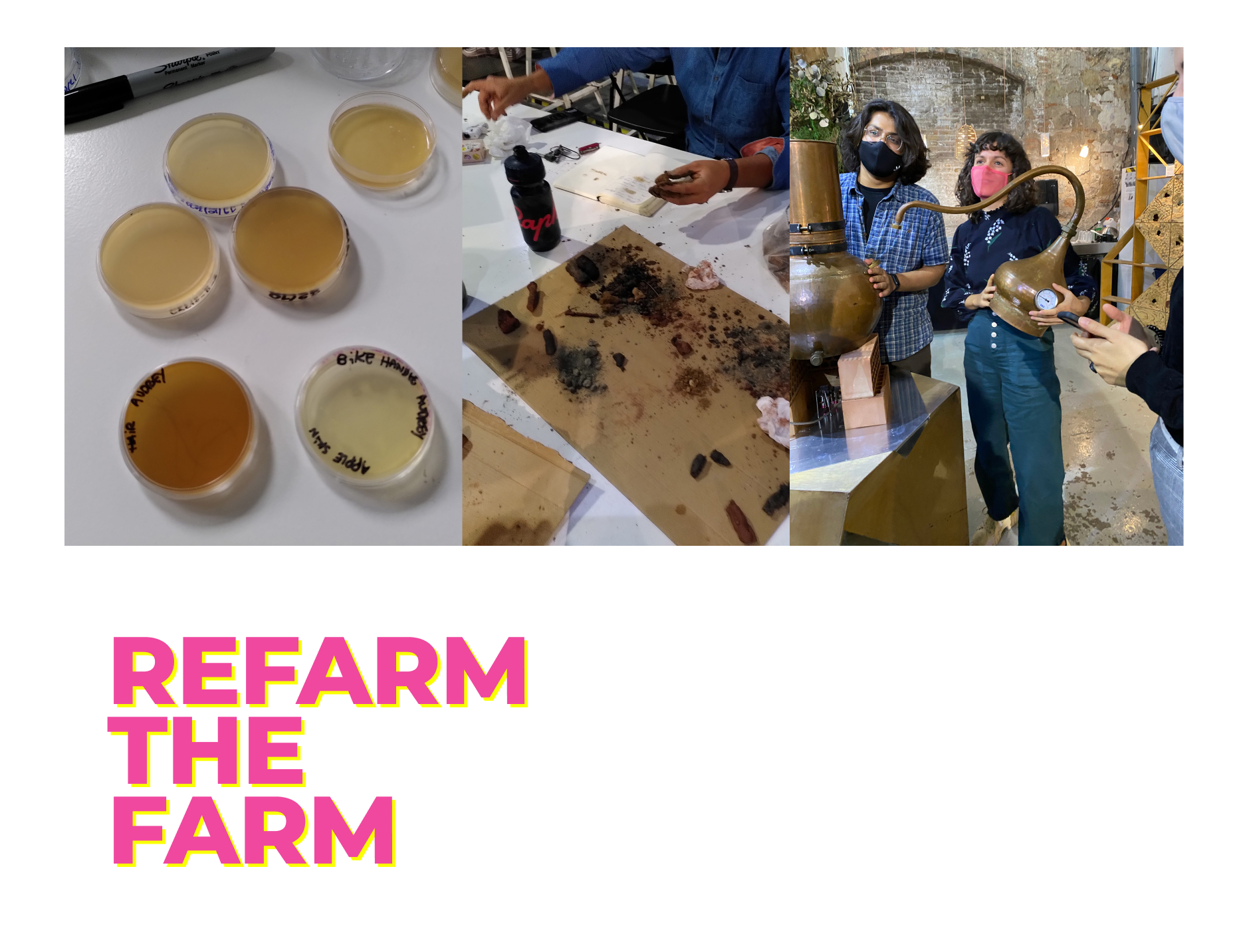bio & agri zero
19th to 29th of October 2021
faculty: Nuria Conde, Jonathan Minchin
week reflections
These two weeks of Bio Zero and Agri Zero gave us (and reminded us lost highschool knowledge) basic understanding of the functionning of cells, proteins, amino acids, DNA, genes... and the possible modifications on them.
We spent also almost half of the time experimenting: preparing mediums for samples analyzis, conducting a PCR, creating bioplastics, analyzing soil, making essential oils... Nuria and Jonathan shared with us a lot of resources easily accessible to everyone who wants to run an experimentation without needing to access expensive lab material. It was really encouraging to start experimenting at home.
This seminar raised for me some questions about our possible role as designers in relation to these topics. What could be our intervention? How to imagine collaboration?

topics that particularly raised my attention
- Access to scientific papers. Sci-hub is a great tool to give free access to all scientific papers. It is very useful once you know the exact name of the paper you are searching. However I am still wondering how to ease the way to find a paper without necessarily use Google Scholar. If reading scientific papers should be a frequent practice for everyone, what tools could make it enter in our habits?
- Ethical issues related to gene editing. Who should decide what we accept as a society? How to bring these conversations to more people, to the scientific community and not restrict important choices to a few? Could design contribute to make these choices more collaborative?
- Concept of "shifting baselines". What we understand as 'normal' in our natural environment is based on what only 1 or 2 generations above considered as normal. How to keep memory of the ecological changes? How to avoid the loss of information from generation to generation?
- Farmers.Jonathan started that class asking everyone who was a farmer. Only two or three people answered. How could there be more?
- Agro-industrial complex. How to change it? How to rethink these systems?
- Praxis. Data is not information. Information is not wisdom. Wisdom is not practice. How to encourage learning by doing? How to be constant gardeners?
seminar assignments
what I want to read/ explore
Critical Mass by Philip BallA Cyborg Manifesto by Donna J. Haraway
Braiding Sweetgrass by Robin Wall Kimmerer
Try to make bioplastics
Understand nitrogene cycle
Agroecology, permaculture - Masanobu Fukuoka "Do nothing farming"
Learn how to analyse soil
Countryside, a report by Rem Koolhaas